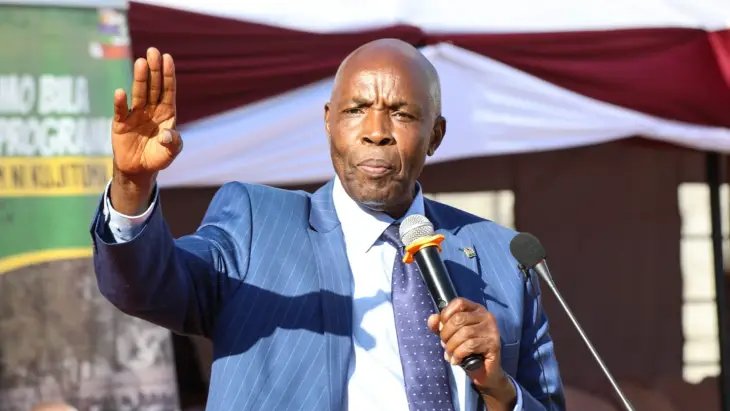𝐄𝐝𝐮𝐜𝐚𝐭𝐢𝐨𝐧 𝐂𝐚𝐛𝐢𝐧𝐞𝐭 𝐒𝐞𝐜𝐫𝐞𝐭𝐚𝐫𝐲 𝐄𝐳𝐞𝐤𝐢𝐞𝐥 𝐌𝐚𝐜𝐡𝐨𝐠𝐮 𝐮𝐧𝐯𝐞𝐢𝐥𝐬 𝐭𝐡𝐞 𝐍𝐚𝐭𝐢𝐨𝐧𝐚𝐥 𝐄𝐝𝐮𝐜𝐚𝐭𝐢𝐨𝐧 𝐒𝐞𝐜𝐭𝐨𝐫 𝐒𝐭𝐫𝐚𝐭𝐞𝐠𝐢𝐜 𝐏𝐥𝐚𝐧 (𝐍𝐄𝐒𝐒𝐏) 𝐟𝐨𝐫 𝐭𝐡𝐞 𝐩𝐞𝐫𝐢𝐨𝐝 𝟐𝟎𝟐𝟑–𝟐𝟎𝟐𝟕.
This comprehensive blueprint will steer Kenya’s education sector over the next five years, demonstrating the country’s readiness to implement reforms.
The plan is the first to be drafted under the Kenya Kwanza Government, signalling its resolve to prioritise education programmes as key cornerstones for the Bottom-Up Economic Transformation (BETA).
Machogu foreshadowed the reading of the Budget Statement for 2024–2035 next week in Parliament, which will allocate the majority of resources to the education sector.
The plan has adopted a bold vision of inclusive and equitable quality education, training, and research for prosperity.
Key pillars emphasise inclusive practices, cutting-edge teaching and learning methodologies, strengthening education management systems, improving transparency, and ensuring efficient resource use.
The plan also seeks mechanisms for ongoing training and support, digital literacy, access to online resources, and the use of ICT in teaching and learning.
The launch of the Strategic Plan comes at a time when the education sector is undergoing major reforms, with the Ministry drafting a Sessional Paper and proposed legislation that will effectively roll out education reforms once passed by Parliament.
The implementation and coordination framework of the Strategic Plan is detailed in a cost implementation matrix, costing about Ksh5.2 trillion over the next five years.
To improve equitable access to education, the Ministry has been implementing the School Meals Programme targeting marginalised children in ASAL counties and urban poor children.
The New Funding Model to finance tertiary education, which uses a student-centred approach, has been implemented for first-year students who joined universities and TVETs.

 Implementation of the new CBC education system- Here is the role played by the Church
Implementation of the new CBC education system- Here is the role played by the Church